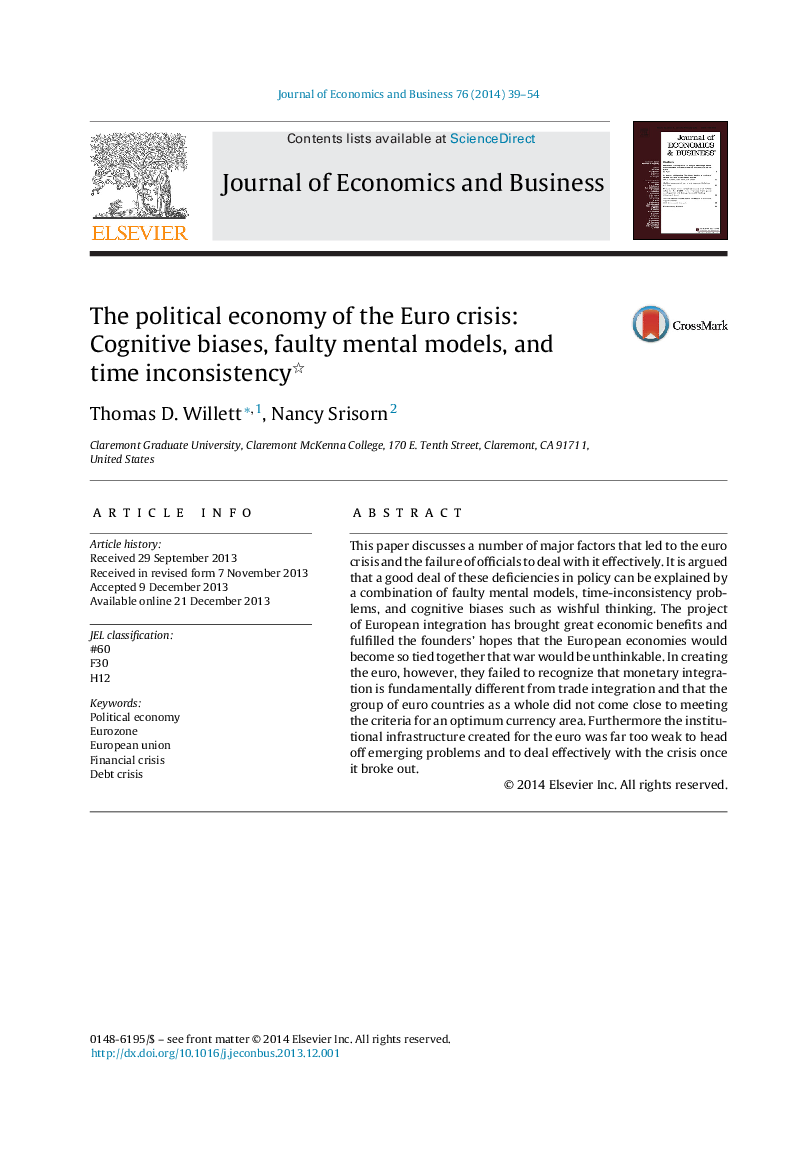| کد مقاله | کد نشریه | سال انتشار | مقاله انگلیسی | نسخه تمام متن |
|---|---|---|---|---|
| 958127 | 1478800 | 2014 | 16 صفحه PDF | دانلود رایگان |
• The euro crisis was inevitable.
• The euro zone did not meet the economic criteria for a well functioning currency area.
• Its institutional design was seriously incomplete.
• Policy responses to the crisis have been inadequate.
• Time inconsistency problems, cognitive biases, and faulty mental models help explain all of these policy mistakes.
This paper discusses a number of major factors that led to the euro crisis and the failure of officials to deal with it effectively. It is argued that a good deal of these deficiencies in policy can be explained by a combination of faulty mental models, time-inconsistency problems, and cognitive biases such as wishful thinking. The project of European integration has brought great economic benefits and fulfilled the founders’ hopes that the European economies would become so tied together that war would be unthinkable. In creating the euro, however, they failed to recognize that monetary integration is fundamentally different from trade integration and that the group of euro countries as a whole did not come close to meeting the criteria for an optimum currency area. Furthermore the institutional infrastructure created for the euro was far too weak to head off emerging problems and to deal effectively with the crisis once it broke out.
Journal: Journal of Economics and Business - Volume 76, November–December 2014, Pages 39–54
